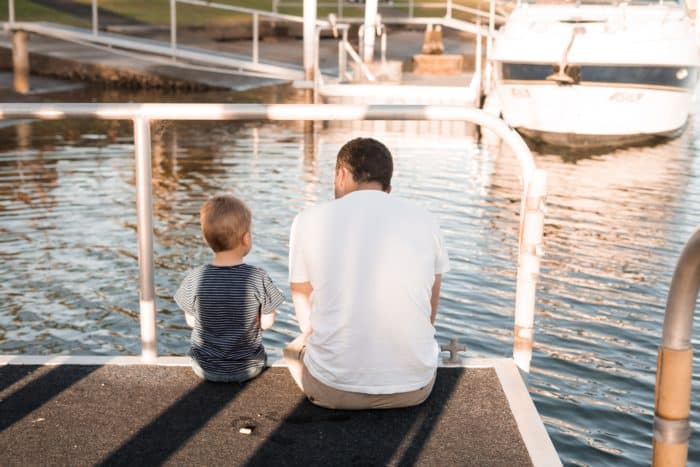How to Talk to Kids about Grief and Loss
By Tracy Hart, LCMHC

As Kids Path grief counselors, we frequently hear questions from parents and caregivers about what to say — and what not to say — when a loved one has died. Adults often feel unprepared for these conversations with young children, and they may worry that they will inadvertently “say the wrong thing.”
It’s true that these conversations can feel very difficult, especially when the loss has personally affected you as well. The good news is that we don’t have to use exactly the right words, and what matters more is offering your child an opportunity to share their honest reaction and perhaps ask you for more information.
Many families have found it helpful to keep the following general guidelines in mind when talking with their child about a significant loss.
Be age-appropriate
For younger children, keep it brief and simple. Let your child’s response or specific questions guide the conversation. Older children may be able to understand more detail, but you can still focus on sharing the basic news and then ask if they have questions.
Be honest
Even the youngest children can be told a simple version of the truth about the circumstances of a death. It is generally better to use concrete and simple language such as, “Her body stopped working, and she died,” rather than use euphemisms that can be confusing to young children who may take things literally.
Validate feelings
Depending on the child’s age and their relationship with the person who has died, your child’s first reaction may be confusion, sadness, anger, shock or even a lack of reaction. It’s important to let your child know that it’s OK to honestly express any emotion that is coming up, and it’s also OK if they’re not sure how they feel right now. You can also say, if you are comfortable sharing, that you also feel sad or another emotion about the loss. Let them know that different people in the family may react in different ways, and this is normal.
Encourage expression of emotion
Help your child think of ways to release big feelings safely. This may be through physical movement, talking, drawing, or crying. See if you can come up with a list of at least five options to post as a reminder for sad or angry moments.
Focus on connection
The most important message you can give your child after a loss is reassurance that you will get through it together as a family. Look for small ways to connect on a daily basis, such as extra snuggle time in the morning, watching a favorite movie together, or starting a routine of an emotions check-in at bedtime.
Consult with a Kids Path counselor
Kids Path counselors are available to the community for a phone consultation at no cost. To talk with a counselor about how to discuss grief and loss with your child, call 336-544-5437 and ask to speak with any Kids Path counselor.
Tracy Hart is a children’s counselor on the Greensboro campus.

